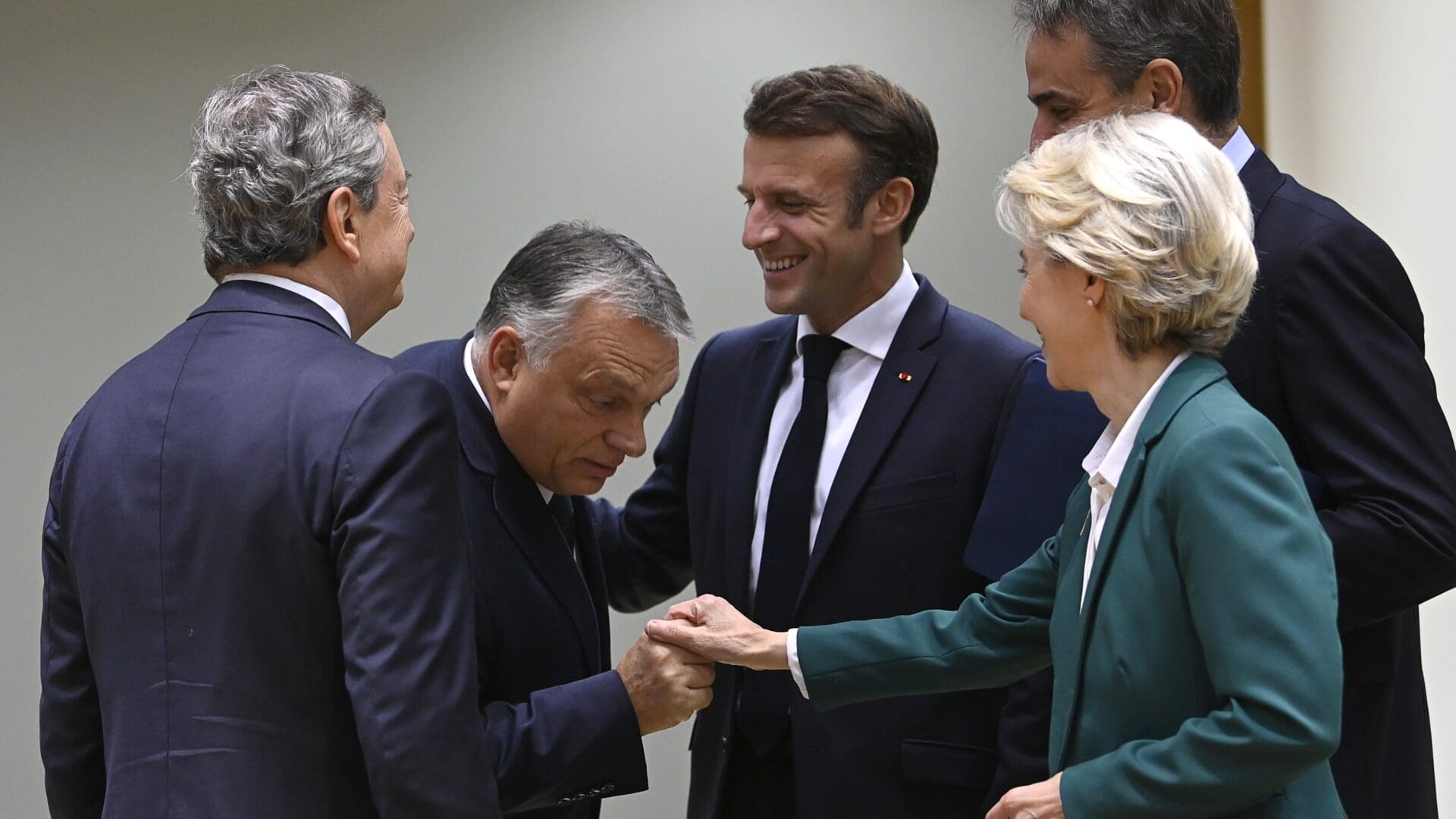All signs point to Ursula von der Leyen running again for the presidency of the European Commission, with the German politician becoming the leading candidate of the European People’s Party (EPP), as reported by the EU affairs news portal Euractiv. To do so, she needs the nomination of her own party (the German Christian Democratic Union) and the support of two other EPP parties. According to Euractiv, this has already been secured: the Civic Platform (PO), led by Donald Tusk, who came to power in Poland last December, and New Democracy (ND), which won a landslide victory in the Greek parliamentary elections in the summer of 2023, have apparently endorsed von der Leyen.
The EPP will hold an informal meeting on 1 February, which will be attended by von der Leyen, just before the key European Council meeting on Ukraine. According to Euractiv, this meeting will discuss the roadmap for the European Parliament elections on 6–9 June—the results of which will determine the allocation of top positions in the EU. An EPP source also informed Euractiv that von der Leyen will announce her candidacy for the presidency of the European Commission at a CDU rally on 19 February. If this indeed occurs, her candidacy could be approved at the EPP congress in Bucharest on 6–7 March.
Viktor Orbán, the ‘Spitzenkandidat Killer’
The lead candidate system, also known as Spitzenkandidat, was first utilized in 2014. It involves political groups in the European Parliament proposing a candidate to the European Council. The Heads of State or Government of the Member States then vote by qualified majority on the candidate, considering the results of the European Parliament elections and the resulting balance of power. The elected candidate subsequently—after the approval of the EP—becomes the head of the European Commission.
The system proved effective in 2014 when the EPP’s lead candidate, Jean-Claude Juncker, was successfully elected as President of the Commission, despite opposition from some Member States such as the UK and Hungary in the Council. However, in 2019, the Council deviated from the established rules of the system and did not endorse Manfred Weber, the EPP candidate. Instead, they reached a consensus on Ursula von der Leyen as the candidate.
According to reports, Viktor Orbán, along with Emmanuel Macron, played a significant role in the 2019 process,
effectively sidelining two top candidates: the Socialist candidate Frans Timmermans and Manfred Weber.
This development is cited as one of the reasons for Weber’s growing animosity towards Hungary and its prime minister, which has become more apparent in recent times.
No Real Candidates on the Left
It is thus highly probable that Ursula von der Leyen will emerge as the EPP’s lead candidate. However, the situation is less definitive for other political groups. Speculations in Brussels has it that the Socialists and Democrats (S&D) have identified a relatively low-profile candidate in Nicolas Schmit. The Luxembourg politician currently serves as Commissioner for Labour and Social Affairs in the von der Leyen Commission.
Schmit’s candidacy has garnered support from the Spanish Socialist and Workers’ Party (PSOE), led by Pedro Sánchez, and the SPD, the leading party in the German governing coalition. Regarding the latter, a Socialist MEP, speaking to POLITICO anonymously, commented: ‘Then there are no other candidates.’
According to various sources, the Socialists are putting forward a relatively lesser-known politician, who is expected to face challenges in the top-tier system, primarily because they are struggling to identify alternative candidates for the position. The retirement of heavyweight socialist politician Frans Timmermans has significantly limited the options for the S&D. Although Maroš Šefčovič from Slovakia was considered, the S&D suspended the Smer MEPs from the political group following Robert Fico’s election victory.
Despite being considered a relatively less prominent figure in European politics, particularly outside his role as a commissioner,
Nicolas Schmit’s candidacy carries negative implications for Hungary.
Within the European Commission, Schmit has been notably outspoken in favour of withholding EU funds to Hungary. He openly asserted that Budapest’s access to EU funds is restricted due to a Hungarian law prohibiting access to content depicting homosexuality or gender reassignment for individuals under 18. Schmit’s candidacy could potentially intensify the existing tensions between the EU and Hungary, given his history as one of Hungary’s outspoken critics. The S&D is set to hold its nominating congress in Rome on 2 March.
Similarly to the Socialists, the European Left (EL) is struggling with the nomination of a top candidate, in the absence of a well-known and charismatic figure for the role. Presently, there is only one potential candidate mentioned, and that is Walter Baier, the founder of the EL and former leader of the Austrian Communist Party. According to Euractiv, Baier’s candidacy may further diminish the EL’s prospects of sustaining a presence on the European political stage. The political group is experiencing a decline in support, its national parties are facing existential challenges, and there is uncertainty about their ability to establish a parliamentary group in the new European Parliament.
The End of the System?
The two right-wing political groups in the EP, the European Conservatives and Reformists (ECR) and Identity and Democracy (ID), fundamentally oppose the top candidate system, which makes fielding a candidate impossible for them. Within the liberal Renew, which encompasses Emmanuel Macron’s party, debates persist on whether to endorse a single top candidate or nominate a politician for each leadership position.
That is why many believe that
the 2024 European Parliament elections could mark the end of the top candidate system
introduced in 2014, primarily due to the absence of prominent candidates. This speculation gains traction as the EU faces the need for fundamental reforms in anticipation of enlargement, and the top candidate system could potentially be impacted by these reforms.
The June elections will play a pivotal role in shaping the nature and direction of these reforms, as the left and the right advocate for significantly different changes. Recent polls indicate a better chance than ever for a long-awaited right-wing shift on the European political scene, which could positively impact relations and pragmatic cooperation between Hungary and the European Union. This is especially relevant considering that the current left-wing majority in the EP is attacking Hungary on purely ideological grounds and Brussels is using this as a basis for withholding EU funds that Hungary is rightfully entitled to.
Related articles:







